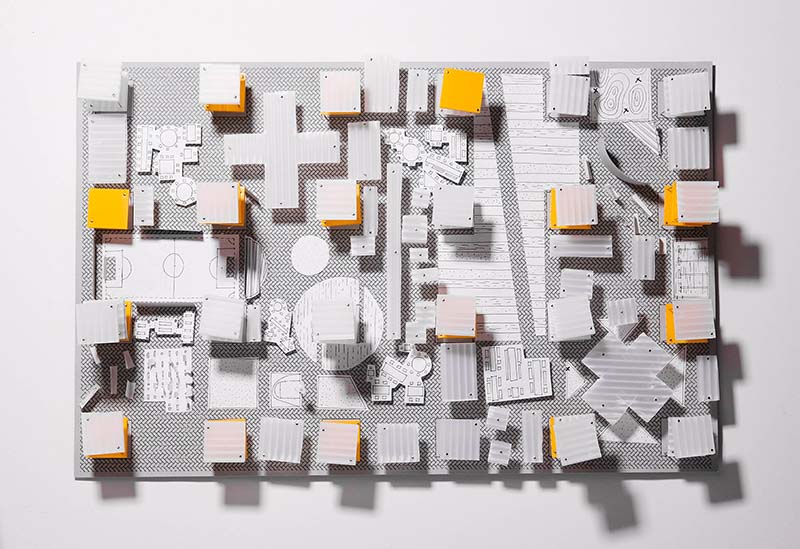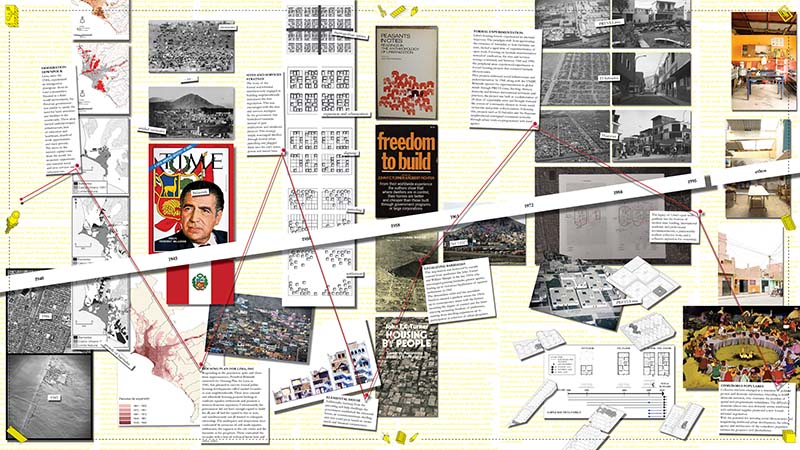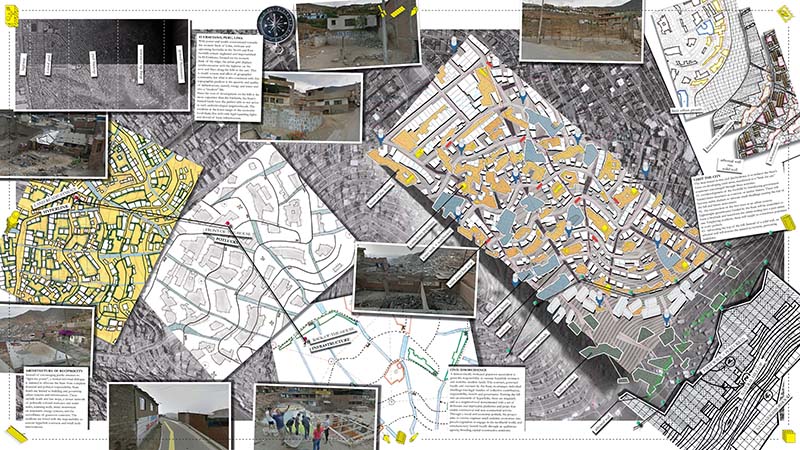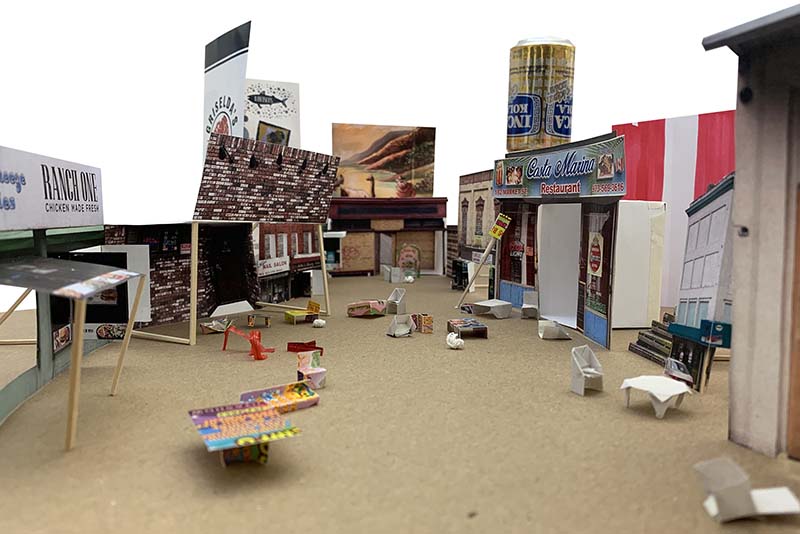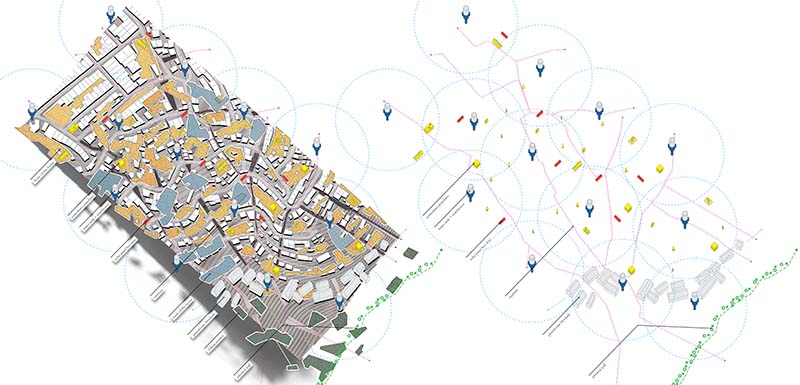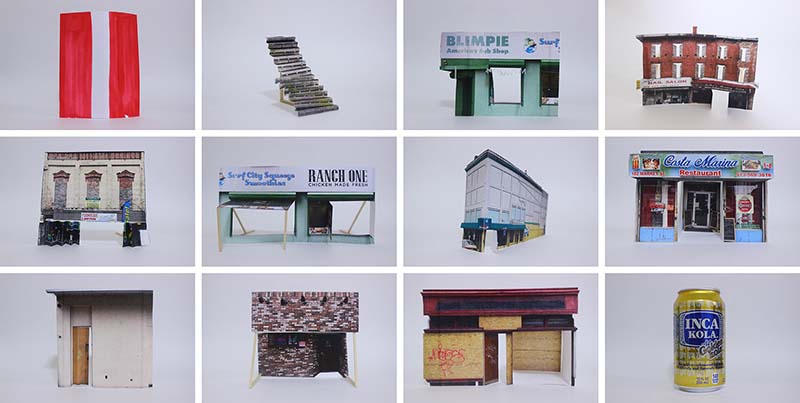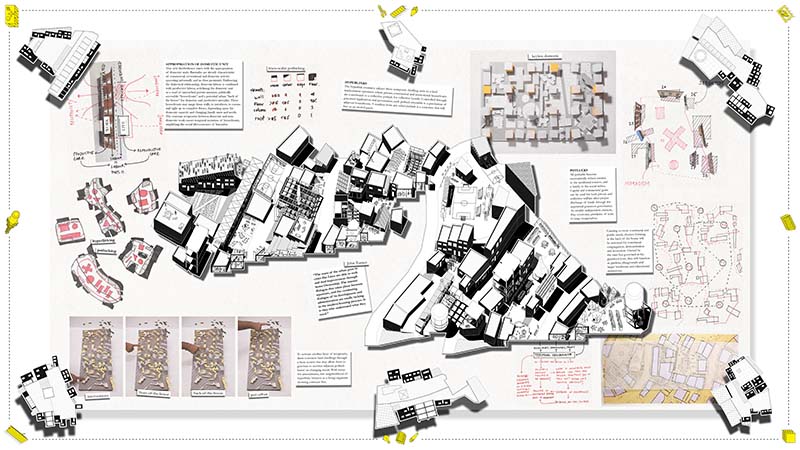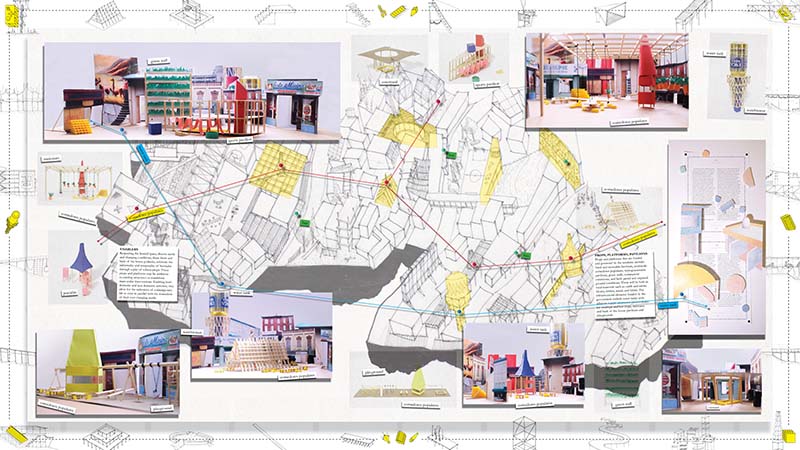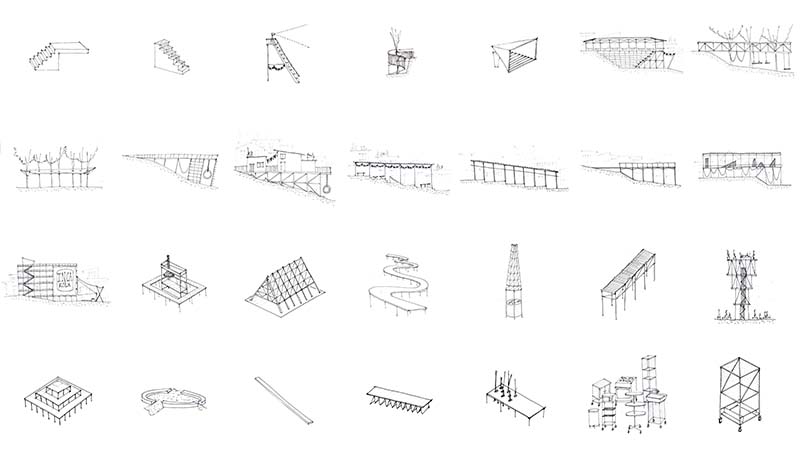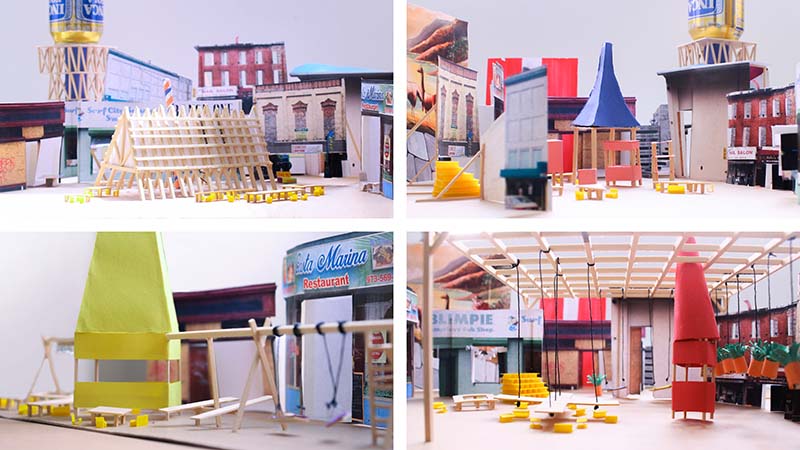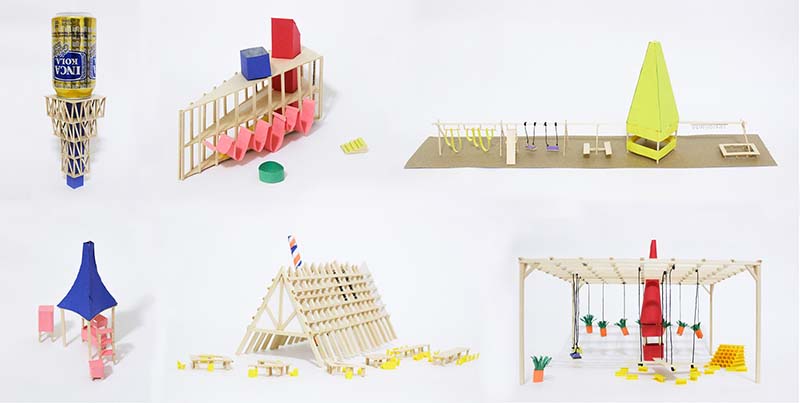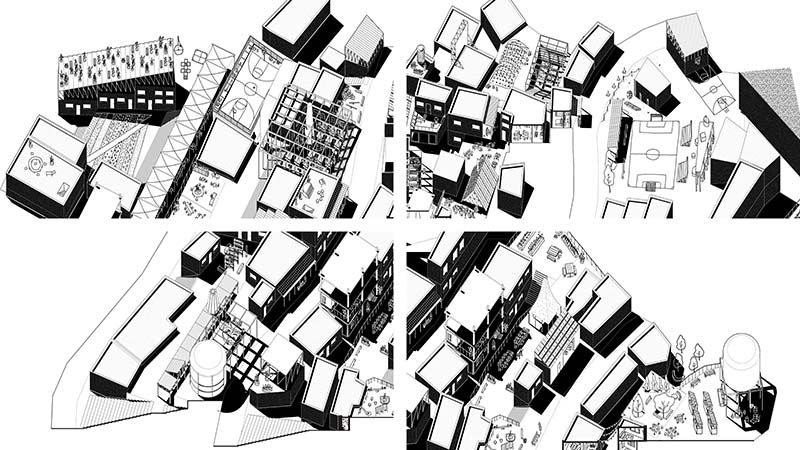Platforms, Props, Players: Production of Civil Disobedience
Lima, since the 1940s, experienced an immigration downpour from its rural communities. Situated in a third world environment, the Peruvian government was unable to satiate the need for basic amenities and facilities in the countryside. These areas battled underdeveloped infrastructure, lack of education and healthcare, the dearth of work opportunities, and mass poverty. The move to the nation’s capital came from the search for economic opportunity and essential social and civic services and infrastructure. With power and wealth concentrated towards the western flank of Lima, inchoate and upcoming barriadas in the North and East foothills remain neglected and impoverished.
One such neighborhood is El Ermitano, located on the western flank of the ridge. Since the cost of development on the hills is far more expensive than the lowlands, the State’s limited funds have the perfect alibi to not arrive in such underdeveloped neighborhoods. The residents at the lower rungs of the economic food chain, live with only legal squatting rights and devoid of basic infrastructure. With El Ermitano as a test site, this project explores the next phase of formal-informal negotiations.
The bottom-up previously restricted to self-help dwellings and mediocre urban informalities, formal systems are re-engineered to provide greater informal agency and allow the ascendant to support the State’s inadequate funds and unconscious intent. With the potential for restoring social idiosyncrasies and magnetizing additional urban development, the ethos, agency, and architecture of the comedores populares initiate the project’s civil disobedience.
Potluck Publics, as an act of civil disobedience, restores and enables simultaneous formality and informality, permanence and temporality. Approached through a movement of kitchen sink realism, a domestic depiction of the working class, the project confronts quotidian life in Lima. The project focuses on the future projection of barriadas, hoping to amplify the potential of past open-work. The urban outdoors is deployed with open-ended, locally funded and reprogrammable props, platforms, and pavilions. This is bolstered with a government-funded network of improved public infrastructure (roads, water tanks, bus stops).
The final phase of the civil disobedience is denying the urban sprawl further growth. Government-funded greenhouses form a barrier of the first wave, employing may residents and supplying to all new and old comedores populares. Additionally, an arboreal wall is grown to finally stop the city and maintain the seismic robustness of the hill, pushing government funds to develop the countryside.
Using political and socio-economic hyperlinking that is spatially realized, the urban potluck focuses on familial and friendly development, overruling any personal endgames. This way these barriadas can collectively improve as co-capitalists, yet foster inter-social contracts and communal piquancy.

